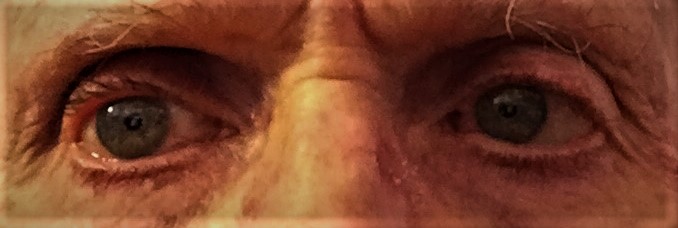Featured Posts

It’s easy to be good if you’ve never been bad.
If you have never stepped over the line or done anything for which you are ashamed, you might not understand much about people who can’t make the same claim. If you’ve lived a good and honorable life, it’s easy to look down on those who have not done the same. It’s easy to condemn those who have cut corners and compromised their own – and society’s – ideas of right and wrong. The problem is, that once the “good people” make up their minds about the “bad people,” it’s difficult, if not impossible, for the “bad” ones to change.
The path to redemption is difficult. It’s a big challenge to change one’s own self-image and behavior, but often, the bigger challenge is changing the minds of other people. To begin, the person with a bad rep is faced with a choice – fight the odds to convince everyone that he has changed his ways – or just give in to the common wisdom that “people can’t change” and keep doing what got him into trouble in the first place.
Unfortunately, the second path is the one most often taken.
My wife Carmela worked with inmates at a prison near our home. In an age of welfare and health benefits, many openly and vocally planned to subject themselves to lives of poverty, rather than make the effort to find jobs or improve their lots. It’s just easier to give in, and many of the women said they’d prefer to have their time to do as they pleased with someone else paying their way, than to have to go to a job every day. Many thought that going to work every day was just too boring and too hard.
That’s a sad and frustrating reality for many people in prison. But for people who have done wrong, and who want to repent, what’s their path to respectability? How long should it take them to live down their pasts? Are they doomed forever, or is there a road to redemption that they can take without groveling, which never works. It only demeans the person begging for forgiveness.
The answer is that former felons should neither have to spend the rest of their lives begging forgiveness nor be forever haunted by their pasts. They have to acknowledge their misdeeds, find new people who have not yet made up their minds about them, and move on. But if their records follow them wherever they go, it becomes almost impossible to change. And, perhaps more importantly, if the friends and family they got into trouble with are still in their lives and still promoting the same harmful and illegal behavior, they need to give up those old friends and family members.
Real friends will understand that.
Do you have a dissenting opinion or any opinion at all on the subject? Contact me at george@georgeleecunningham.com and let me know. Meanwhile, you can always subscribe and get an email reminder of blog postings. Your name will not be shared and you may cancel at any time.

China is making a big mistake. The country has begun surveilling its citizenry, keeping tabs on everybody, and figuring out who’s been naughty and who’s been nice. China has been doing these kinds of things for years, but it’s now beefed up its effort with a heavy dose of technology and a new Social Credit System. Due to take full effect next year, the System would rank all citizens and businesses on their economic and social reputations.
In the United States we have credit scores, put together by private companies that calculate credit reliability according to their proprietary algorithms and rank individuals according to what they calculate as credit reliability. If a person has a low score, it will be more difficult for him or her to get a loan.
China is getting ready take it up a notch. If a citizen scores high on the Social Credit System scale, he or she would be rewarded with more freedom and better jobs. If a person’s score is low, he or she would be punished, as would that person’s close associates, such as friends, co-workers and family members. Knowing that they could be branded with a poor social credit score by association, would be an incentive for those closest to a “bad social actor” to shun his company, isolate him, and pressure him to conform to the government’s dictate of good social behavior.
Details are still fuzzy, but the system would be backed by drones flying overhead, a network of cameras lining the street with face-recognition software, an army of retirees who spy on their neighbors and make notes of either good or bad behavior, and a computerized score card.
There apparently already exists a blacklist of people. At the end of last year, 5.4 million rail trips and 17 million flights were cancelled for people on the list. Exactly why those folks are on the list is not public knowledge.
So much for the trouble-makers. The main problem, of course, is that it’s the trouble-makers that move society forward. They are the men and women who give the finger to the common wisdom, the ones who are obsessed with new ideas and schemes. They are the ones who take off running, who crash and burn, and then get back up and try again.
Society needs those kind of people. It’s not the compliant folks who make the world better. It’s the uncompliant, stubborn, often nasty people who are willing to take an idea and turn it into something that benefits everyone, including themselves. They’re not always the nicest folks around, but without them, society and civilization stagnate.
That’s what the bureaucrats in China – and in every other developed country – don’t get and probably never will.
Do you have a dissenting opinion or any opinion at all on the subject? Contact me at george@georgeleecunningham.com and let me know. Meanwhile, you can always subscribe and get an email reminder of blog postings. Your name will not be shared and you may cancel at any time.
Author Douglas Murray sees a bleak future for European culture and values in this cautionary tale about unrestricted immigration from Muslim countries. The early newcomers came, fleeing the bloodshed in their homelands. Many of the later ones came merely seeking to cash in on the welfare benefits offered by the affluent nations of Europe. READ REVIEW
Do you ever have somebody you love die, and you think I would give everything I own just to have one more day with them? Well, that’s not going to happen. But how much time do you have to spend with them before they die? Less than you may think READ MORE
Despite obvious problems, I support legalization of marijuana for a number of good reasons. It’s futile to prohibit a product that so many people want, especially in a free society. That was the case with the prohibition of alcohol. It lead to widespread disrespect for the law and the rise of organized crime. But in an attempt at fairness, here is the other side of the story. READ MORE
